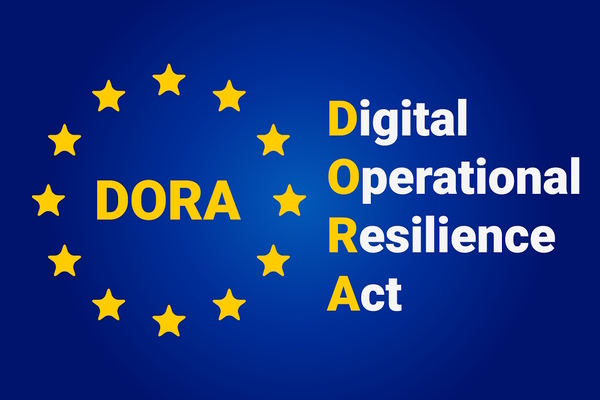Understanding the UK’s new DISD regulation

Marcel Wendt at Digidentity provides some insights into the Digital Information and Smart Data Bill, taken from the EU’s approach for UK business
The UK’s upcoming Identity Verification Services Bill, part of the broader Digital Information and Smart Data Bill (DISD), signifies a major shift towards integrating digital identities into today’s business landscape.
Announced in the latest King’s Speech, the UK government anticipates significant economic benefits from Digital IDs. This new approach aims to replace physical identification cards and documentation with a unified digital solution.
The legislation will introduce a system of ‘trust marks’ for digital identity providers. This means businesses and users can verify services through a public database that meets government standards.
The ’trust marks’ will not only serve as a certification of compliance but also allow transparency, making it easier for users to identify reliable digital identity services.
This move represents a considerable advancement, but it also places the UK in a position where it must catch up to its European counterparts.
The EU’s digital ID landscape
The European Union has already set a high standard for digital identities with its eIDAS regulation—short for electronic IDentification, Authentication, and trust Services, offering valuable insights for the UK’s digital identity system.
eIDAS has established a robust framework for secure and interoperable digital interactions across EU member states. Its success lies in its standardised approach to digital identities, which has streamlined cross-border transactions and administrative processes.
This approach has contributed to economic growth across the EU. For the UK, adopting similar principles could enhance international interactions and improve the overall efficiency of its digital ecosystem.
As the UK prepares to implement the Identity Verification Services Bill, it faces a core opportunity to redefine how identities are managed and secured, but it’s currently falling behind.
Catching up with the DISD Bill
The UK can now leap forward with its own digital identity system, thanks to the DISD Bill. However, the success of this hinges on ensuring that both regulatory frameworks and public trust are robustly established.
As we stand in the UK, the Digital Identity and Attributes Trust Framework (DIATF) provides essential guidelines and best practices for digital identity services. It aims to ensure that digital wallets are secure, reliable, and aligned with user expectations for privacy and data protection.
However, currently, the DIATF lacks a solid legal foundation. Recent calls from digital identity leaders highlight this critical gap, emphasising that without a regulatory framework, concerns remain about how personal data will be protected and how consent will be managed.
To fully leverage the potential of digital IDs, the UK must address these regulatory gaps by strengthening its legal framework. This will be crucial for kick starting implementation, building public trust and ensuring successful integration into everyday life.
Benefits for UK business
The DISD promises a unified digital approach that will simplify countless interactions in our everyday transactions.
One of the most significant impacts of digital IDs in the UK will be on administrative efficiency. With online transactions on the rise, reaching 2.71 billion in 2024, an increase of more than 70 million from last year, there is a growing need for more streamlined systems.
As the UK transitions from physical to digital IDs, businesses will benefit from a modernised approach to verifying identity, which will reduce the time and effort spent on manual processes.
For example, digital IDs such as SERMI can help motorists when interacting with independent garages. Currently, obtaining separate certificates for each vehicle manufacturer/importer is time-consuming and costly due to unique requirements. Digital IDs will streamline the process of sharing information with garages and will help motorists get their vehicles serviced faster.
In the banking sector, digital IDs can streamline account openings. Instead of requiring multiple visits or the submission of physical documents, customers can use their digital IDs to authenticate their identity online, making the process quicker and more user-friendly.
Digidentity works with both Cifas, and as part of the SelectID scheme. Both initiatives adhere to UK Government’s Trust Framework standards for digital identity to deliver enhanced regulatory compliance, combat fraud and deliver greater efficiency for both the user and service provider.
By enabling the integration of digital IDs with our pre-existing systems, businesses can align with regulatory standards such as Know Your Customer (KYC) and Anti Money Laundering (AML) more seamlessly; helping to reduce compliance costs and improve operational efficiency.
It’s important to remember that these advantages are more than just efficiency. They build a crucial element of the UK’s broader goal to modernise digital infrastructure and catch up with other international standards.
Decentralising user data
The principles underpinning the DISD Bill emphasise both the security and user control of their own data. This is crucial at a time where more and more of our personally identifiable information (PII) is shared digitally, with internet-based scams and fraud cases rising alongside.
Now accounting for over 40% of all criminal offences in England and Wales, online fraud is a significant challenge to maintaining trust in the security of digital systems as a whole. Digital IDs, however, offer a solution that allows individuals greater consent over their data.
Advanced encryption, biometric verification and multi-factor authentication add layers of security, making it more challenging for malicious actors to impersonate legitimate users and conduct fraudulent transactions.
Our research into identity protection measures in the UK found that 84% of people are worried about the amount of data they have shared online but only 27% are actively taking steps to reduce it.
This shift towards Digital IDs provides a solution that can address these key privacy concerns and reduce the risk of sensitive information being misused or stored in unauthorised databases.
This approach complements the DISD bill’s objectives by ensuring that user data is not only secure, but also under the user’s control, aligning with the goal of enhancing transparency and trust in digital systems.
As the UK gears up to implement the DISD Bill, businesses must be proactive to the changing regulatory environment to fully capitalise on the benefits of digital IDs.
While there are current legislative roadblocks, understanding the nuances and benefits of the DISD now will position businesses not just to comply, but to thrive in a more secure, efficient, and user-centric digital economy.
Marcel Wendt is CTO and Co-Founder at Digidentity
Main image courtesy of iStockPhoto.com and da-kuk

Business Reporter Team
Most Viewed
23-29 Hendon Lane, London, N3 1RT
23-29 Hendon Lane, London, N3 1RT
020 8349 4363
© 2024, Lyonsdown Limited. Business Reporter® is a registered trademark of Lyonsdown Ltd. VAT registration number: 830519543





